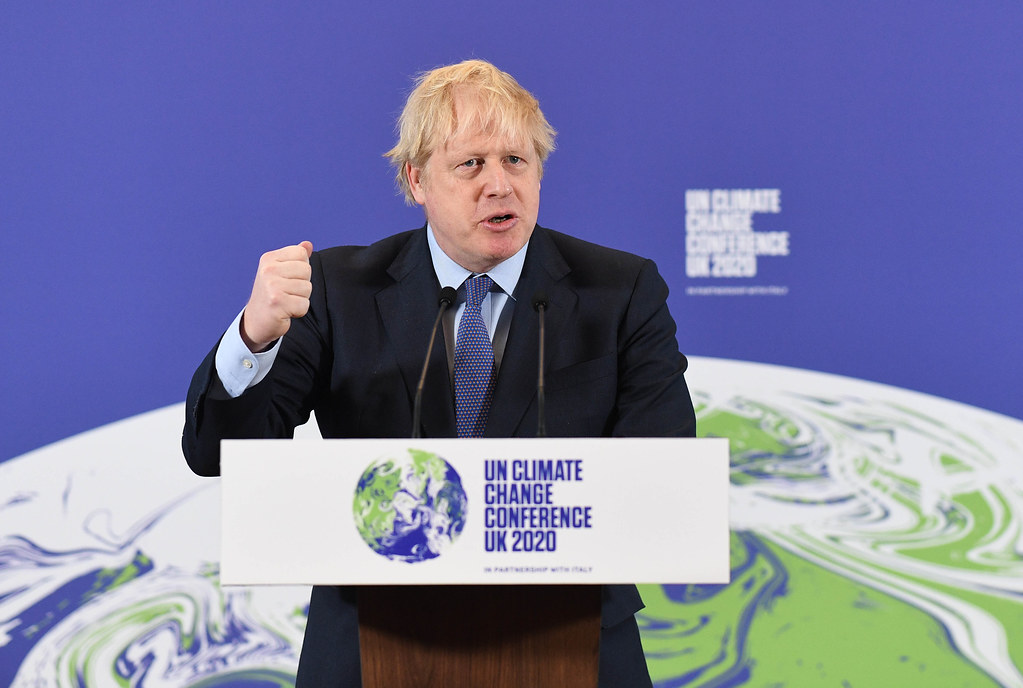In the run-up to COP26, a new report about the state of female entrepreneurship in high impact sectors, has found that the gender funding gap has closed in the UK’s thriving GreenTech sector.
Female founders raise only 15 per cent of all equity funding, which is a shortfall of £1.6bn per year, according to a report published today by the Female Founders Forum, a partnership by think tank The Entrepreneurs Network and Barclays. In Inspiring Innovation, the think tank calls on the Government to close the gender funding gap and provide more opportunities for women to be inspired into entrepreneurship.
Commenting on the need to close the funding gap, report author Aria Babu, Head of the Female Founders Forum, said: “Women start businesses with on average half as much money as men do, as they are less likely to take out personal loans or use savings. Equity finance is critical in high-tech sectors where rapid growth is a priority and the path to commercialisation and profitability can be long.”
Progress is being made in some sectors where the funding gap has been, or is close to being, closed. GreenTech businesses, which are companies that use technology to bring us closer to net zero and other environmental goals, have closed the gap with female-founded companies making up 34 per cent of businesses in the sector but raising 42 per cent of all equity funding. But in other areas, the share of equity funding remains persistently low. For example, in AI female founders receive only 2 per cent of funding.
Katherine Morgan, Head of High Growth & Entrepreneurs at Barclays, commented: “It’s inspiring to see female entrepreneurs leading the charge in GreenTech. In the run up to COP26, innovations from these companies will be vital in helping the UK reach its target of net zero by 2050. However, despite this sector setting the standard, overall progress is stagnant – and we need investors to help women in all sectors succeed.”
Female-led GreenTech business Greyparrot, a case study in the report, is changing the way businesses deal with their waste. Using AI, the company is able to analyse, in real-time, the types of waste making its way along conveyor belts in order to increase recycling rates. To date, they have raised £4.1m in funding from investors and £500,000 from Innovate UK.
Greyparrot’s co-founder and CEO, Mikela Druckman, highlighted the importance of creating role models and supporting peers: “I was incredibly inspired by examples of women who had to break barriers in their fields, and I knew that I wanted to be able to do the same for the next generation. When most of the people in the room are still all male, it can create an imbalance. But being able to be connected with peers going through the same thing is incredibly beneficial to the entrepreneurial journey”
Outlining reasons for the gender funding gap, Babu said: “VCs invest in people like them, so with half of firms not having any female investors – and only 13 per cent of all senior decision-makers in the industry being women – female founders start out massively on the back foot. It’s very telling that once they receive equity investment, women are just as likely to successfully raise second and third funding rounds as men are – the problem is getting on that first rung of the ladder.”
The report urges VCs to review their talent pipelines and hiring practices to bring in more women at both junior and senior levels, and to expand their networks to engage with more female founders. In other areas, though, it is the Government that it calls to action, with recommendations including amending staff-to-child ratios to make high-quality childcare more affordable and introducing statutory shared parental pay to allow more equal sharing of family responsibilities so female entrepreneurs can focus more on their businesses.
The report was endorsed by the Women and Equalities Select Committee Chair, Caroline Nokes MP: “I support calls for a more diverse venture capital industry, to tackle the ‘leaky pipeline’ of talent in STEM, and suggest ways to make childcare more accessible for working mothers.
“We cannot afford to have a recovery designed by men for men. As this report spells out, we will all end up poorer and less able to tackle the challenges of the next few decades if women are held back from founding companies and achieving their full potential as entrepreneurs, scientists, and inventors.”
Morgan said: “At Barclays, we’re committed to connecting more women with the right finance and providing skills to this generation of female entrepreneurs, as well as the next. I’m continually amazed by the innovative businesses we work with, such as Greyparrot, and I know these female entrepreneurs will continue to inspire the next generation of female-led STEM businesses. However, we need a collective effort across the industry to ensure we’re doing everything we can to make the UK the best place in the world to be a female entrepreneur.”
Babu added: “The last 18 months have amply demonstrated the transformational, life-saving importance of innovation in life sciences. The UK spends more online per capita than any other country in the world. AI is increasingly powering the products and services we use all day, every day, whether we realise it or not. So it’s incredibly disappointing not only that female founders are so rare in these critical sectors, but even more so that the ones that there are receive such little backing from investors. This isn’t just a funding gap, it’s an innovation gap. Without more women being inspired into entrepreneurship, and given the funding they deserve, technology and science will continue to be missing vital perspectives, and huge challenges – from the impact of the ‘default male’ approach to medicine, to bias in AI – will continue to go unsolved.”
Druckman said: “I was incredibly inspired by examples of women who had to break barriers in their fields, and I knew that I wanted to be able to do the same for the next generation. When most of the people in the room are still all male, it can create an imbalance. But being able to be connected with peers going through the same thing is incredibly beneficial to the entrepreneurial journey. It’s not an easy journey. But it’s probably one of the most rewarding journeys you can ever have.”
To read the full Inspiring Innovation report visit: https://www.tenentrepreneurs.org/s/Inspiring-Innovation.pdf




